TORKHAM, Pakistan — The Taliban flag flies on one side of the border. On the other is the Pakistani military — and hope for freedom for terrified Afghans.
Mursal and Manisha, two teenage sisters from Kandahar, Afghanistan, smiled with relief after they got through to Pakistan earlier this week.
“Girls were not allowed to go to school. There was no place for girls to get an education,” Mursal said in English after she emerged from the dusty, crowded border crossing.
Hundreds of people were lined up on the Afghan side of the border, tunnel-like and lined with barbed wire, where Taliban militants stood guard sporting what appeared to be brand-new military fatigues and holding AK rifle variants and other military-grade weapons.
The fighters checked to see if people had the correct paperwork, like valid passports and visas, and then passed them along to the Pakistani officials for the final hurdle to freedom.
For those seeking to escape Taliban rule who were left behind by the international evacuation effort, the best hope of a way out has been into Pakistan and thus at the end of a treacherous journey some 140 miles from Kabul across Taliban-controlled territory.
The girls, who declined to provide their last names as they rushed to a waiting taxi, said they felt compelled to leave their country because there was no future for them there.
Thousands of others are desperate to leave too, afraid of Taliban repression and ballooning economic uncertainty.
“You should stay at home and when you become 16 years old, you should marry,” Mursal said about one of the recent Taliban proclamations.
The all-male, all-Taliban interim government announced by the militant group earlier this week has promised to be more tolerant and inclusive, but some say there are already signs of women’s rights being curbed.
Several journalists who covered a women’s rights protest earlier this week were arrested, according to The Associated Press. And two journalists working for the Etilaatroz newspaper said they were beaten by militants after they were arrested while covering the event.
Elsewhere, teachers and students at universities in Kabul and other major cities told Reuters male and female students were being taught separately or separated by curtains in classrooms.
Asked if they felt compelled to leave, the girls immediately replied “yes” in unison.
While some refugees will settle in Pakistan, for Mursal and Manisha it is just the first stop on their journey to a new life.
They have Canadian visas and are headed for Ottawa. “It’s an imaginary life,” they said anxiously, not knowing what to expect.
Taliban spokesman Zabihullah Mujahid told NBC News the militant group would not stand in the way of anyone looking to leave Afghanistan as long as they have valid travel documents, but many feel stuck in a country with a bleak future.
The U.S. helped evacuate as many as 124,000 people, including at-risk Afghans, but the Biden administration acknowledged it was not able to get “everybody out that we wanted to get out.”
The first international passenger flight to leave the Afghan capital, Kabul, since the U.S. completed its withdrawal only left Thursday.
Download the NBC News app for breaking news and politics
While the exact number of those who have sought to cross the border into Pakistan since the Taliban takeover is unclear, the role played by Afghanistan’s neighbors extends far beyond accepting refugees.
Pakistan and its intelligence service, the Inter-Services Intelligence, have a long history of ties to the Taliban, and the head of the ISI, Lt. Gen. Faiz Hameed, visited Kabul over the weekend. Though Pakistan stands to gain from a Taliban-ruled Afghanistan, it could also see instability and anger: Earlier this week, protesters defying the Taliban chanted anti-Pakistan slogans on the streets of Kabul.
But not everyone is unhappy.
On the eve of the 20th anniversary of the 9/11 attacks that set the U.S. invasion of Afghanistan in motion, for some the Taliban’s return to power provides hope.
Rahim Omar, a Pashtun — the dominant ethnicity in Afghanistan and the Taliban — who crosses the border frequently for work as a day laborer, said he was pleased the militant group were ruling again and that he believed they would bring some stability to the region.
“We want peace in the future,” Omar, 35, said.
He spoke in English as he reflected on the decades of war in his neighboring country, which has seen conflict and violence since the Soviet Union invaded in 1979. Just over 20 years later, the U.S. invaded with money and unfulfilled promises of stability.
Now the Taliban are back in power.
“Inshallah, they can bring peace,” Omar said.
Surrounded by a large group of men, Omar asked the crowd in his language if they thought things would improve now that the Americans have left and the Taliban have returned to power.
“Now life will become good,” Omar translated on the heels of a resounding “ahh” and a lot of head nodding from the gathered crowd.
Molly Hunter reported from Torkham, Pakistan, and Petra Cahill reported from London.

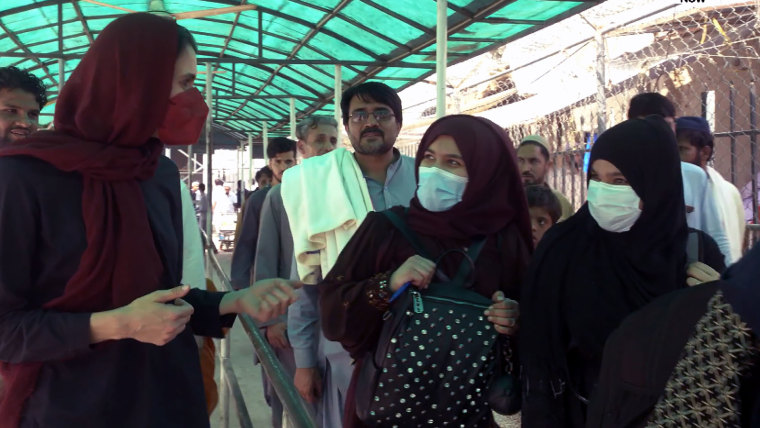
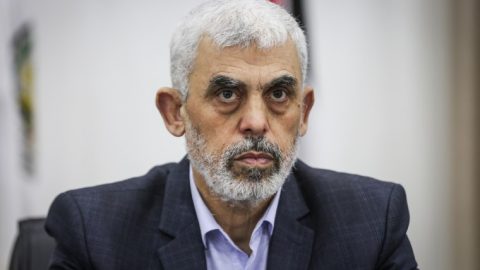


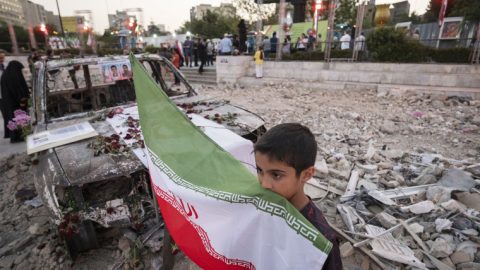

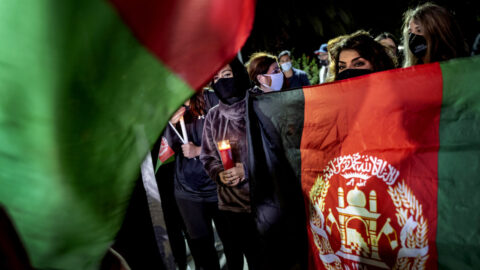

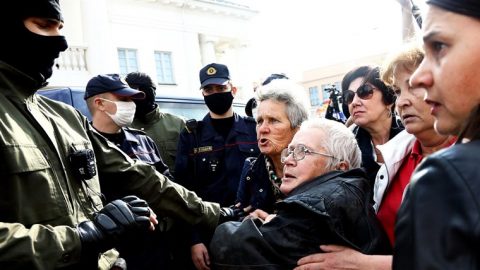
Recent Comments